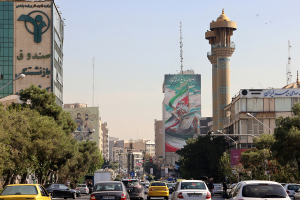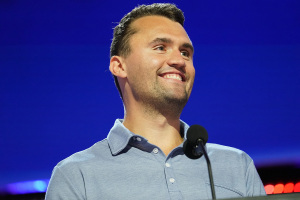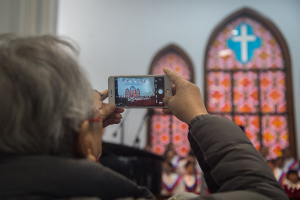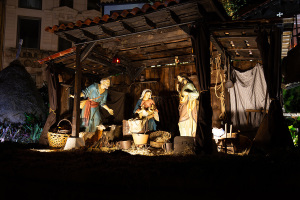Joel Osteen Voices Opposition to 'White Spaces' Use
Megachurch pastor Joel Osteen, whose grin usually adorns his best-selling books on how people can tap into God's goodness, isn't smiling when it comes to a proposal on "white spaces" that may interfere with his preaching.
Osteen, senior pastor of Lakewood Church, in Houston, has asked Federal Communication Commission (FCC) Chairman Martin not to allow technology companies to sell wireless devices that will operate within television "white spaces" or chunks of unlicensed spectrum. Doing so would result in "significant harm" to the church's worship ministry and tens of thousands of other organizations in the U.S., said Osteen in recent letter sent to the FCC.
In the letter, dated Oct. 6, the pastor accuses the people lobbying for use of the spectrum of showing "little disregard for non-profit Houses of Worship."
The letter is the second correspondence Osteen has sent to FCC regarding the white space debate. Last October, he joined other pastors in making a similar plea with the FCC not to permit new mobile electronic devices from operating in the frequencies currently used by wireless microphones.
Currently, television white spaces go unused, acting as buffer zones between the occupied television frequencies. But the debate over how these unused frequencies is intensifying as the Feb. 2009 conversion deadline from analog to digital transmission approaches. Big tech companies and wireless device manufacturers see the unused frequencies as carrying huge potential for making wireless broadband more accessible to both urban and rural areas.
Recent tests conducted by the FCC showed that the new devices posed some interference issues with wireless microphones. Two weeks ago, Google co-founder Larry Page urged the FCC to give companies unlicensed access to vacant television channels before November's presidential election, according to the Wall Street Journal.
But new developments in the debate have renewed opposition to spectrum use from Osteen and other prominent wireless microphone users including the National Religious Broadcasters, NFL, NASCAR, Broadway, Grand Ole Opry, MTV, Country Music Association, and Cirque du Soliel.
Having over 17 years of experience in helping out with the audio and technical aspects of the church services and television broadcasts, Osteen said he could personally attest that the church's current wireless microphone technology is essential in operating church services and allowing close interaction between pastors and musicians and their congregation.
Currently, Lakewood Church reaches 7 million people in over 139 countries through its television broadcast every week, which is made possible with the help of wireless microphones. But the church's message could be hampered if the FCC opens the door for just any device to use the spectrum, according to Osteen.
"I am concerned that FCC turn a blind eye to the wireless microphone use in Houses of Worship and opens these respective frequencies to new unlicensed devices, the Commission will cause immeasurable damage to our ability to minister," said Osteen in the letter.
Osteen, like the NRB, doesn't oppose making the white spaces available but just wants all the homework done before the FCC gives the green light.
"The FCC should require that all new devices provide complete and assured interference protection for existing wireless microphone users operating in this spectrum," he concluded.
The NRB sent its own letter to the FCC at the end of July, asking that the devices be approved for white spaces only after the "auto-sensing products being tested have passed with flying colors on multiple levels."
The Commission, which conducted tests over the summer, will make a decision on the white spaces in the next few months.



























